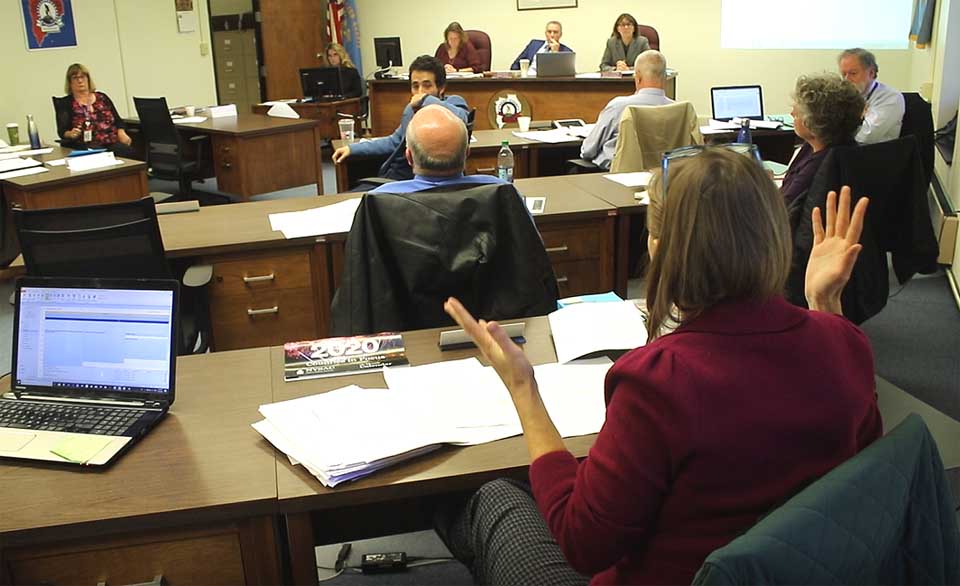County-Manager
Public Hearing
Set For Dec. 4
2 Informational Sessions Eyed
At Oneonta, County Courthouse

By JIM KEVLIN • Special to www.AllOTSEGO.com

 COOPERSTOWN -- After the job description was expanded to widen the field of applicants, county board Chair David Bliss, R-Cooperstown/Town of Middlefield, today set a public hearing on creating a county-manager position for 10 a.m. Wednesday, Dec. 4.
COOPERSTOWN -- After the job description was expanded to widen the field of applicants, county board Chair David Bliss, R-Cooperstown/Town of Middlefield, today set a public hearing on creating a county-manager position for 10 a.m. Wednesday, Dec. 4.
The decision was an initiative by the board’s Administration Committee, chaired by county Rep. Meg Kennedy, R-Mount Vision, that has held a second meeting for the past 22 months to determine how best to craft a professional position to direct the $116 million government.
Before then, Kennedy said, she is organizing two public information sessions, one in Oneonta and the other at the county courthouse in Cooperstown, to allow citizens to get their questions answered. Dates to follow.
You have reached your limit of 3 free articles
To Continue Reading
Our hard-copy and online publications cover the news of Otsego County by putting the community back into the newspaper. We are funded entirely by advertising and subscriptions. With your support, we continue to offer local, independent reporting that is not influenced by commercial or political ties.

